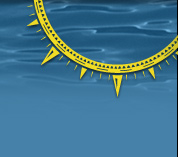
 |

Formal Education Programs School ProgramsEnvironmental Science on the Three Rivers Marcellus Shale + River Ecosystems RiverTalesParticipantsPDF Forms Online Evaluation Links Teaching Opportunities Links to Related Sites College ProgramsProgram Offerings and OptionsInternshipsProfessional Development WorkshopsOnline Evaluation Links Teacher Resources |
 Dear Partners in Education, The RiverQuest Board of Directors announced recently that the nonprofit is actively seeking to merge with another agency to preserve its river-based education program. Additional information will be posted as it becomes available. Please feel free to contact RiverQuest with any questions at 412-231-2712.
Marcellus Shale + River EcosystemsThis program has concluded and is no longer available.COURSE SHORTSGrades: 4-12 Season: N/A Program Day: 4.5 hours Students explore topics out of today's headlines as they travel Pittsburgh's famous three rivers onboard Explorer, a floating laboratory. Hands-on activities shed light on the geology and physcial science of shale gas extraction, and discussions consider both the opportunities and challenges of this new industry. Microscopic water analysis reveals the tiny life forms that are the origin of the natural gas found within shale. Students explore point-vs-nonpoint source pollution and work together to test the rivers for several chemical indicators of water quality.
PA ACADEMIC STANDARDS ADDRESSED
the formation of igneous, sedimentary, and metamorphic rocks. 4.2 Watersheds and Wetlands: quality. quality.
exploitation 4.5 Humans and the Environment: energy. 3.3.A Earth Structures, Processes and Cycles:
* Minimums may apply. Actual cost of $100/student is subsidized through the generous support of foundations, corporations and government agencies.
|